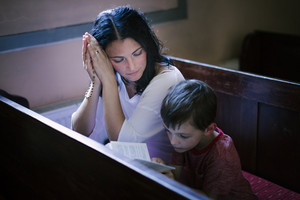What is real faith? This question has been debated by theologians and philosophers for centuries. While there are many different interpretations of what constitutes authentic faith, most would agree that true belief in God requires more than just intellectual assent or outward observance of religious rituals. Real faith involves an intimate relationship with the divine, characterized by trust, love, and devotion. It means acknowledging our dependence on God and allowing Him to guide us through life’s challenges and triumphs.
The Importance of a Personal Relationship with God
Having a personal relationship with God is essential to developing an authentic faith. When we take the time to connect with Him on a deeper level, we can experience His grace, mercy, and unconditional love in a profound way. A personal relationship with God allows us to communicate with Him directly, share our fears, doubts, and joys, and receive guidance and comfort when we need it most. Developing this type of relationship takes time, effort, and patience, but it is worth the investment.
Developing Spiritual Disciplines
In addition to cultivating a personal relationship with God, developing spiritual disciplines such as prayer, scripture study, fasting, and service can help deepen our faith and strengthen our connection to the divine. These practices allow us to align our will with God’s will, become more attuned to His voice, and grow in our understanding of His teachings. They also provide opportunities for self-reflection, repentance, and renewal.
Finding Community and Support
Participating in a community of believers can be incredibly beneficial to our spiritual journey. Church services, Bible studies, retreats, and other forms of fellowship can provide us with encouragement, accountability, and support as we navigate the ups and downs of life. By sharing our struggles and successes with others who share our values and beliefs, we can gain new perspectives, insights, and inspiration. We can also learn from those who have gone before us and draw strength from their examples.

Embracing Uncertainty and Doubt
Finally, embracing uncertainty and doubt is an important part of having an authentic faith. As human beings, we will always face questions and challenges to our beliefs. Rather than trying to suppress these feelings or avoid them altogether, we should embrace them as opportunities for growth and learning. By engaging with difficult ideas and remaining open to new possibilities, we can deepen our understanding of God’s nature and our place within His plan. Ultimately, finding authentic faith is not about checking off boxes or following a set of rules. It is about taking risks, being vulnerable, and courageously pursuing a deeper relationship with the divine.







